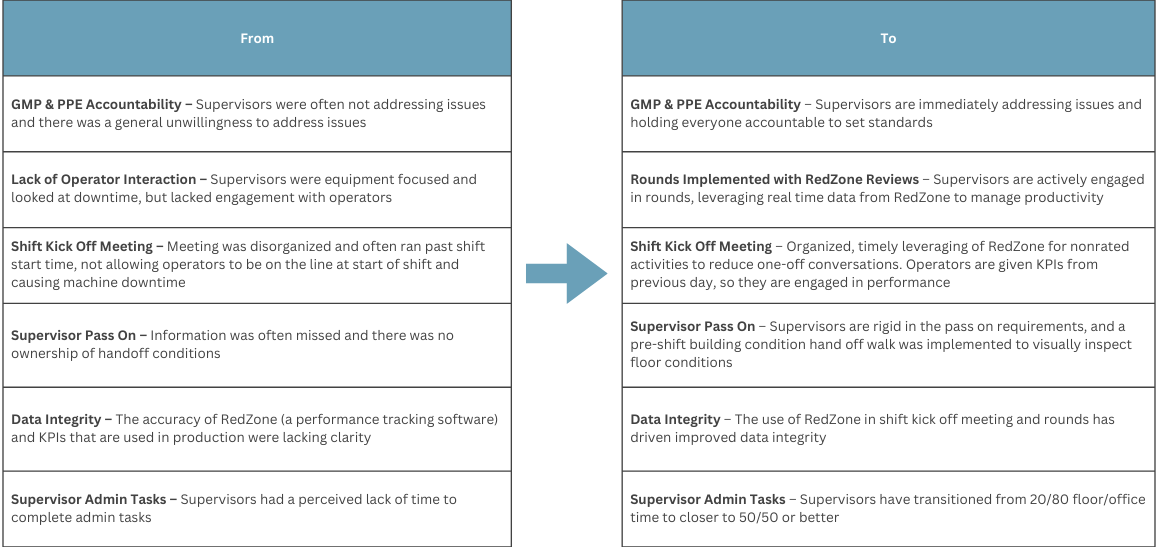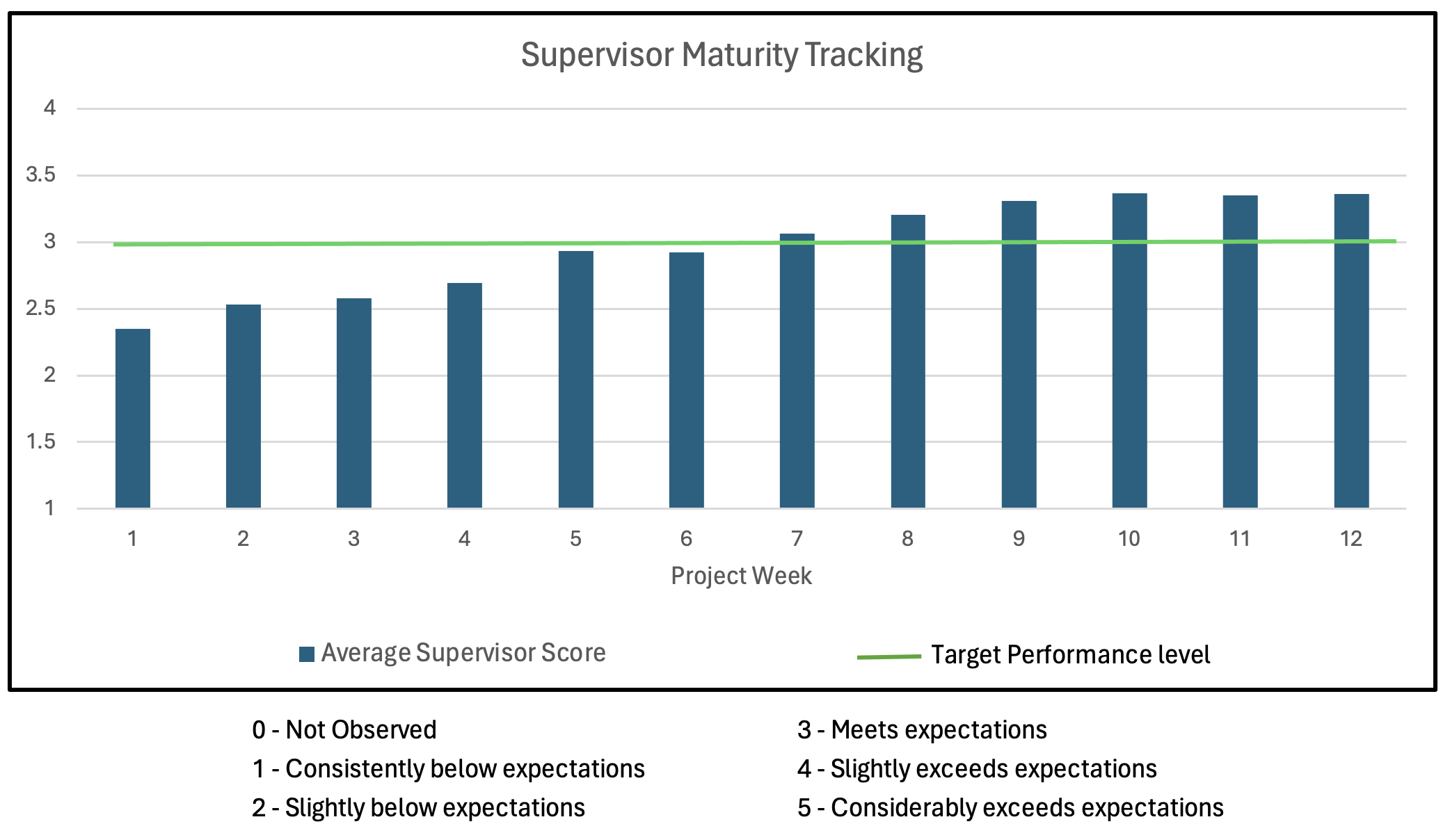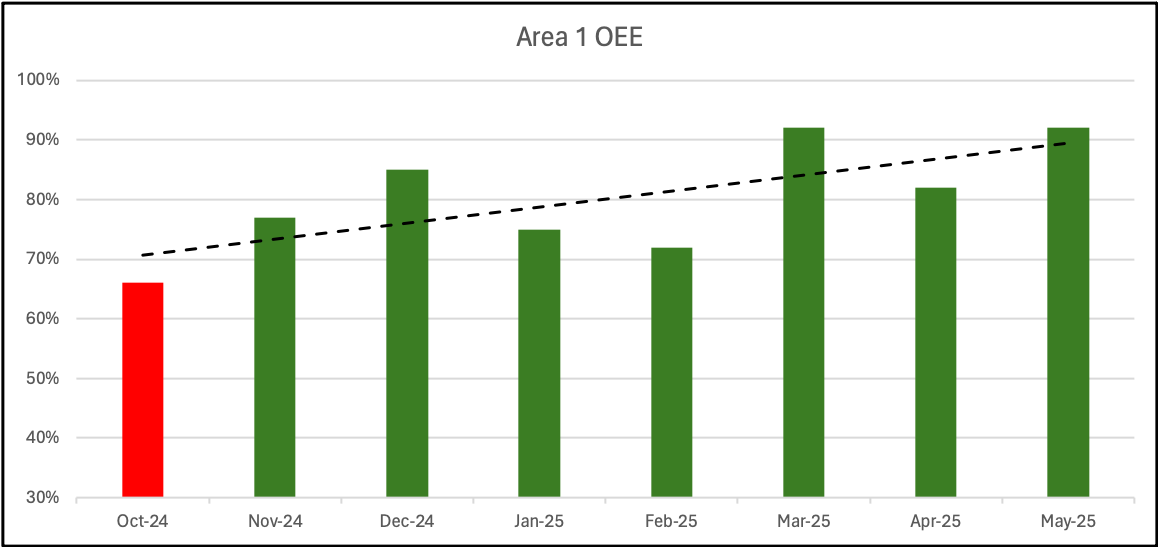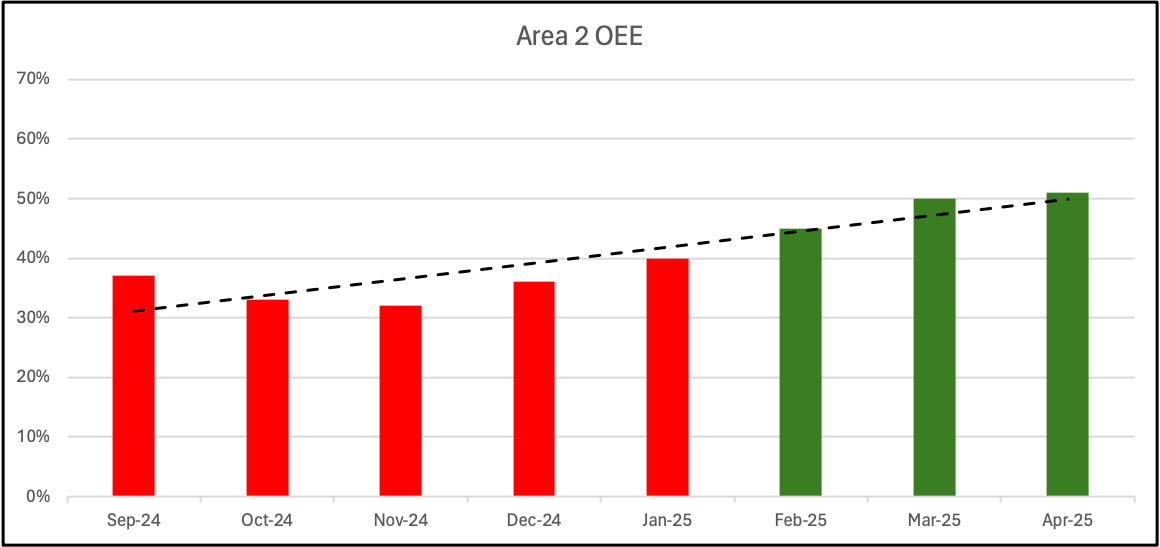Manufacturing Case Study
Client Profile
Solutions
- Consultants partnered with supervisors, working side by side. Consultants provided 24/7 coverage on site, shadowing supervisor the entire time.
- Focus was centered on floor, operator performance-based interaction, confrontation skills, and accountability.
- Supervisors were evaluated daily and graded on 29 elements. One-on-one reviews were conducted on a weekly basis to discuss highlighted opportunities and improvement.
Challenge
Supervisory Shift Transition
- Supervisors often inherited a plant with poor housekeeping with expected work not completed
- Transfer of information between shifts was spotty, often resulting in substantial lost supervisory and production time because of not knowing current conditions
Shift Change
- Machine downtime at shift change was extensive
- Protracted start up / scheduling meetings prevented operators from getting out on the floor by the start of the shift
- Operators would frequently leave their stations up to 20 minutes before the end of the shift
Unclear Supervisory Roles
- With 2 supervisors per shift, task delineation was unclear
- In some cases, one supervisor would play a purely administrative role with little to no time on the floor
Little Effective Interaction with Operators
- Supervisor’s time on the floor was mostly equipment focused
- If there were interactions with operators, discussions were casual, and performance was not discussed
Lack of Accountability
- Blatant violations of PPE and GMP policies were not confronted
- Actions taken by operators that resulted in significant loss of time or product were routinely “explained away” or ignored, not addressed
Approach
Standardize Transition Process
- Design and install Standardized Pass Down process with agenda
- Implement structured building walks with oncoming supervisor “accepting” current building conditions
Improve Startup Meetings
- Pre-post job assignments, so operators do not have option to choose jobs during meeting to shorten start-up meeting
- Ensure incoming operators relieve outgoing operators at their workstation
Leader Standard Work
- Clearly define and agree to what a typical day in the life of a supervisor should look like including floor tours, process checks, and meetings
- Require supervisory presence on floor to assure operators remain at their stations and with machines running
Performance Based Supervisor Floor Tours
- Formalize floor tours to include online checklists for supervisory review of operating condition and entry of settings and parameters
- Incorporate reviewing current/shift performance with operators as well as validation of downtime reporting, Quality and Metal Detection tests
On Floor Coaching
- Coach supervisors by working side by side with a supervisor
- Focus on discussing situational responses and assuring accountability is administered where warranted
Results
Improved OEE
- OEE increased from 52% to 63%
Regimented Shift Transition Process
- Housekeeping standards have dramatically improved
- Supervisors come in prepared and are no longer “surprised” by conditions on the floor
Effective, Efficient Shift Change
- Lost time at shift change has been virtually eliminated
- Machines continue running through shift change with operators present
Clear Understanding of Roles
- All supervisors balance administrative vs floor time much better. No supervisors are exclusively focused on administrative tasks anymore.
- Supervisors are averaging about 70% of time on the floor
- Daily supervisor routines are much more coordinated and habitual
Constructive Supervisor and Operator interactions
- Discussions with operators are collaborative and occur frequently throughout the shift/day
- The focus is on performance and removing barriers to get back on track
Consistent Application of Accountability and Discipline
- Preliminary discussions and agreement with union allowed a significant increase in accountability
- When appropriate, disciplinary actions were taken, without an increase in grievances
”Performance improvements directly translated into over $1MM in annualized cost savings.













